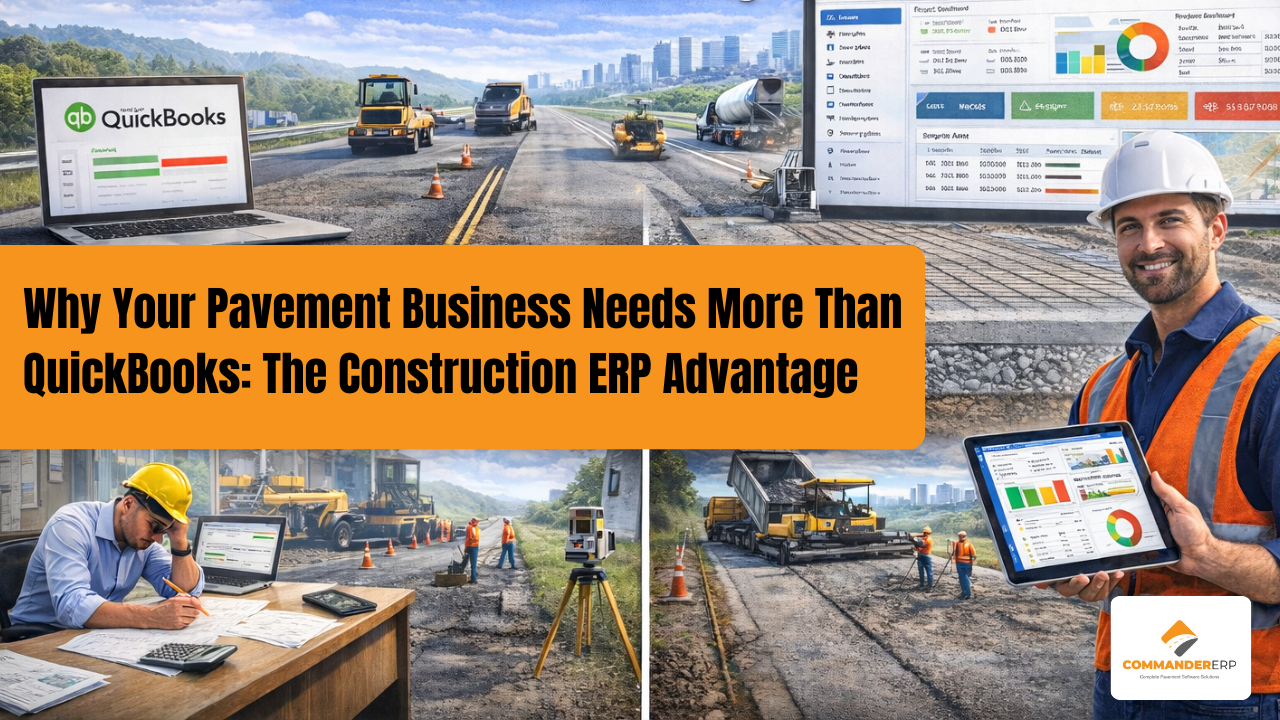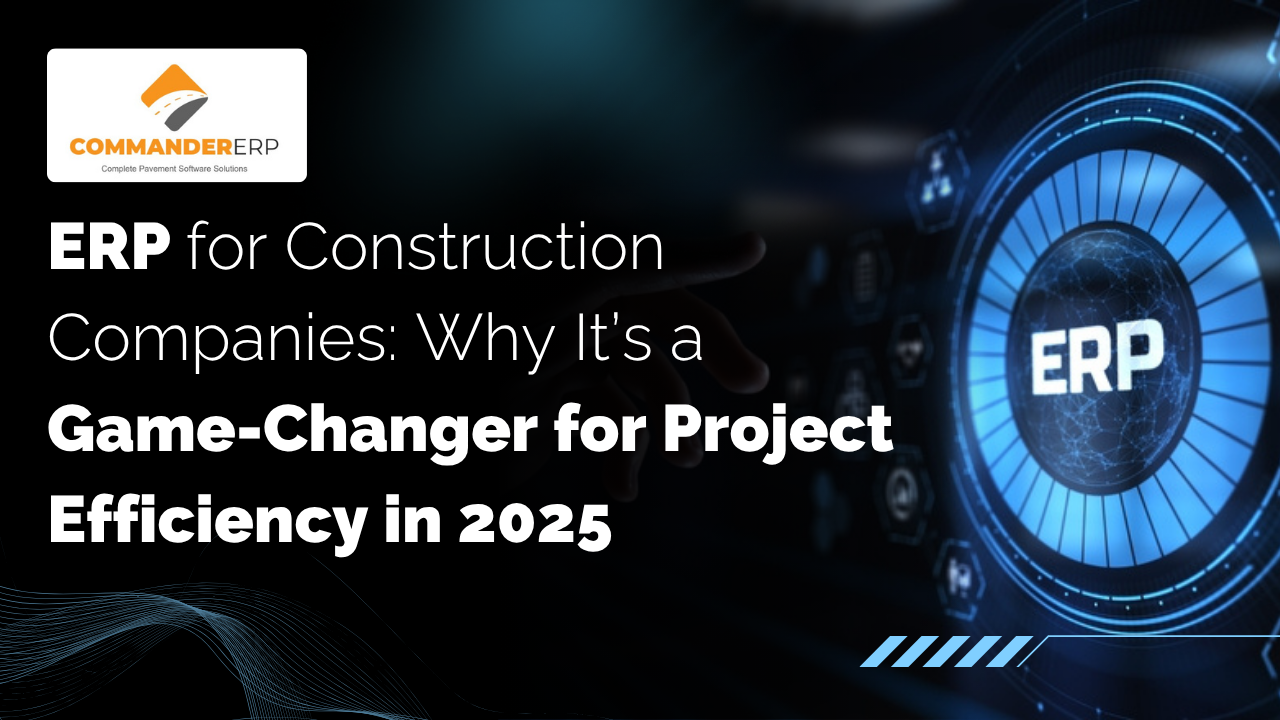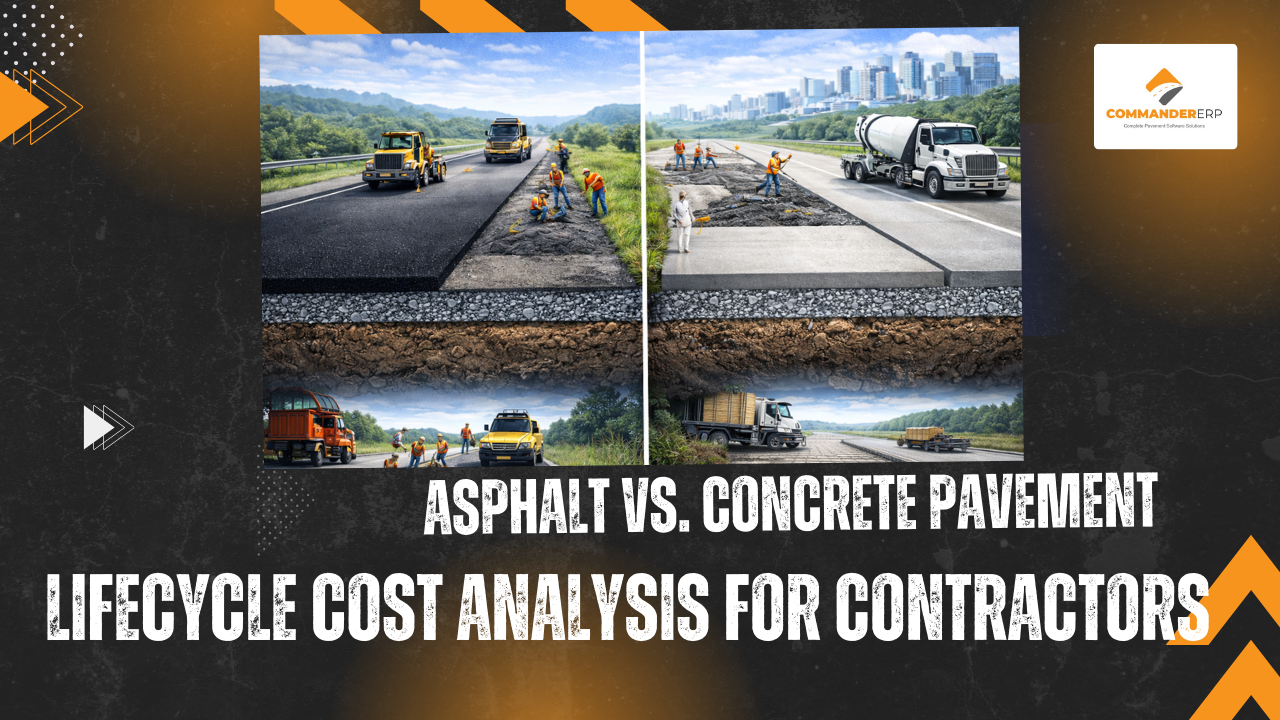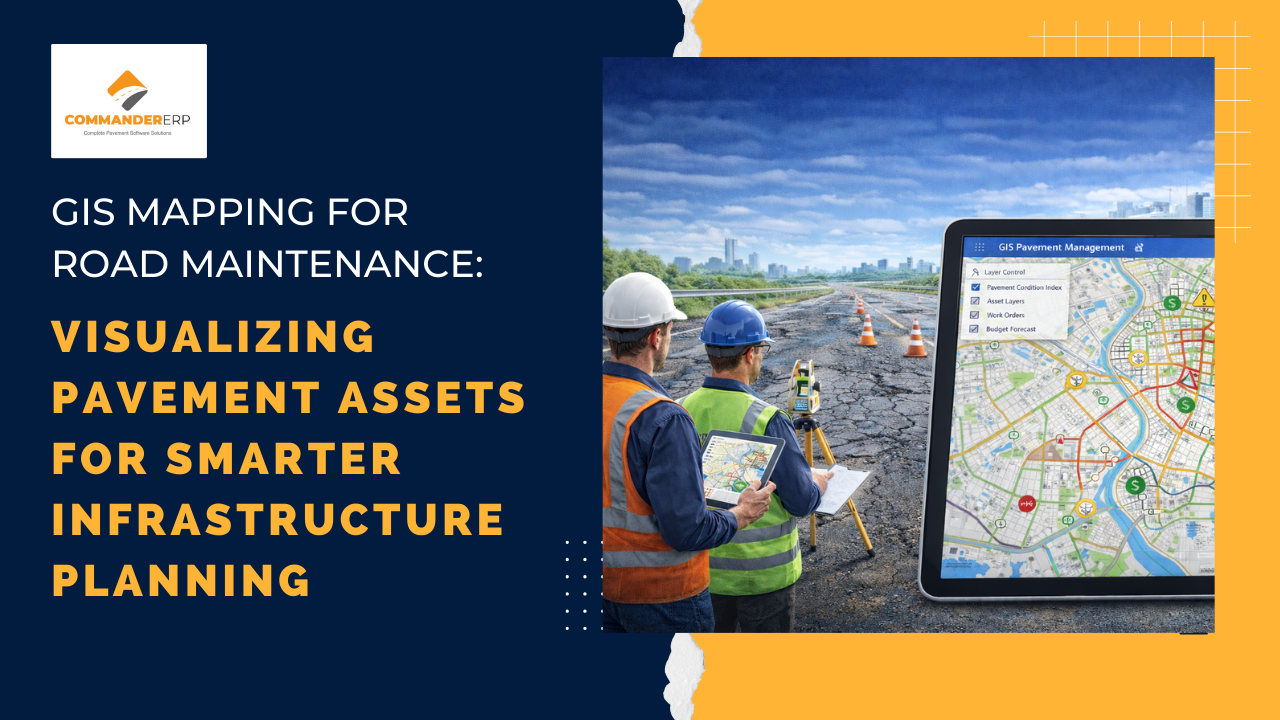
x
c
o
m
m
a
n
d
e
r
e
r
p
Blog
- Home
- Blog
- Commander ERP
- 2025-07-25
ERP for Construction Companies: Why It’s a Game-Changer for Project Efficiency in 2025
The Real Cost of Inefficiency in Construction Project Management
In the construction world, time truly is money. Yet many companies continue to suffer from disorganized schedules, mismanaged budgets, and inconsistent communication between teams.
These inefficiencies often lead to missed deadlines, wasted materials, and spiraling costs, issues that severely cut into profit margins. From inaccurate estimates to incomplete reports, the construction industry is flooded with pain points that traditional systems and disconnected tools simply can't solve.
This is where the power of a modern ERP system tailored for construction becomes not just helpful, but essential
What Is ERP for Construction Companies? A Complete Overview&nb
ERP, or Enterprise Resource Planning, for construction companies is a specialized software system that centralizes and streamlines core operations. Unlike generic project management tools, construction ERP software is built to address the unique complexities of the industry.
It integrates various functions like project planning, budgeting, procurement, equipment tracking, labor management, and financial reporting into a single unified platform. Whether you’re managing residential developments, roadwork projects, or commercial builds, an ERP solution for construction allows you to control every aspect of your operation in real time with data-driven insights.
Cloud-Based ERP for Contractors: Flexibility and Real-Time Access
Today’s construction sites aren’t confined to office walls, and neither should your software be. Cloud-based ERP for contractors offers unmatched flexibility, allowing field teams and office staff to collaborate seamlessly no matter where they are.
With mobile access and real-time data syncing, cloud ERP platforms eliminate communication delays and ensure everyone from the site supervisor to the CFO is aligned. For growing construction firms, SaaS-based ERP solutions reduce IT overhead, scale with ease, and offer automatic updates ensuring your team always works with the latest technology.
Solving Core Pain Points with ERP: Scheduling, Labor, and Equipment Tracking
Construction projects involve hundreds of moving parts, and one weak link can cause serious delays. ERP systems solve this by bringing precision to scheduling, labor management, and equipment tracking.
Instead of relying on manual spreadsheets or disjointed apps, you get a centralized timeline that updates dynamically. Field supervisors can assign crews, monitor labor hours, and manage shifts more efficiently.
At the same time, the system can track heavy equipment usage, schedule maintenance, and allocate machinery across multiple sites, ensuring that your assets are fully utilized and not sitting idle.
How ERP Improves Estimating, Bidding, and Invoicing in Construction
Winning the right bids is only part of the equation; executing them profitably requires accuracy and consistency. Construction ERP systems streamline the entire financial cycle, from initial cost estimating to bidding and invoicing.
Historical cost data and automated templates help generate accurate bids, while workflows ensure that purchase orders, subcontractor payments, and invoices are tracked and reconciled.
This minimizes billing errors, improves cash flow, and builds stronger trust with clients. The result? Faster payments, fewer disputes, and more repeat business.
Project Cost Control with ERP: Job Costing and Budget Forecasting
One of the most powerful features of construction ERP software is its ability to monitor and control project budgets in real-time. With built-in job costing tools, you can track material usage, labor expenses, and overhead costs as they occur.
ERP systems alert you when costs deviate from forecasts, allowing you to take corrective action before the budget is blown.
Forecasting features also allow you to simulate various project scenarios and anticipate future costs, giving project managers the confidence to make informed decisions and avoid financial surprises.
ERP for Small and Mid-Sized Construction Companies: Is It Worth It?
There’s a common misconception that ERP software is only for large enterprises. In reality, small and mid-sized construction companies can benefit just as much, if not more, from implementing an ERP system. Modular ERP solutions are now affordable and scalable, allowing growing firms to start with core features and expand as needed.
These systems remove the chaos of managing operations with spreadsheets, email chains, and whiteboards, and replace them with structured workflows and centralized reporting. With a smaller team, every hour counts and an ERP can help ensure every hour is productive.
Road Construction and Civil Projects: Why You Need Industry-Specific ERP
Not all construction projects are the same. For companies involved in road construction and civil infrastructure, the requirements are even more complex.
ERP systems designed for these industries offer features like DOT compliance tracking, subcontractor coordination, and right-of-way documentation.
They also enable teams to manage multiple work zones, permit requirements, and change orders within a single dashboard. This reduces regulatory risk and improves transparency for public sector clients who demand precision and accountability. When your business spans counties or states, an industry-specific ERP is the key to consistent delivery.
Choosing the Right Construction ERP System in 2025
With so many ERP systems on the market, selecting the right one can feel overwhelming.
In 2025, the best construction ERP solutions are those that offer ease of use, strong customer support, mobile functionality, and flexible integrations with accounting, CRM, and scheduling tools.
Look for systems that allow you to customize workflows to match how your teams actually operate. Avoid platforms that require constant third-party add-ons or have steep learning curves.
The goal is to streamline, not complicate, your business operations, so simplicity and intuitiveness matter just as much as features.
Final Thoughts: From Chaos to Control with ERP
The construction industry has always thrived on discipline and precision, yet many companies still operate in chaos due to fragmented systems. ERP software changes that by bringing clarity, control, and confidence to every project.
Whether you're bidding on a multimillion-dollar road project or managing a growing team of subcontractors, the right ERP system becomes your digital backbone. It empowers teams to collaborate better, managers to make data-driven decisions, and companies to scale sustainably.
If you’re ready to move from reactive management to proactive execution, an ERP designed for construction is your next smart investment.
Ready to Take Control of Your Construction Projects?
At Commander ERP, we help construction and pavement companies across the U.S. transform how they work, one project at a time. With real-time job costing, cloud access from anywhere, and tools built specifically for the construction industry, our ERP system empowers you to stay on time and under budget.



